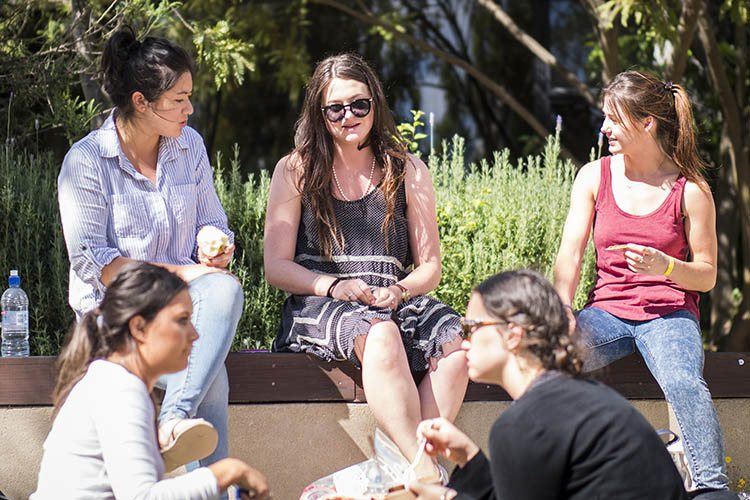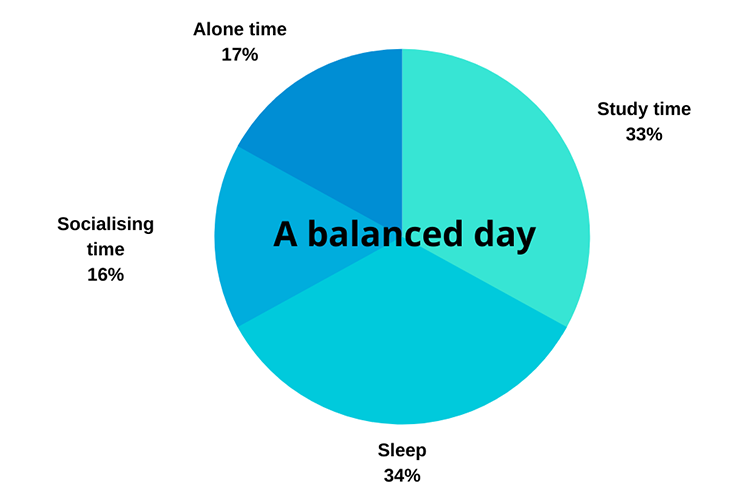Overcoming loneliness and homesickness.
Whether you’ve moved from a different country, a different island or even just from across the street, living away from your family and friends for the first time can be scary and overwhelming.
Homesickness is very common, affecting around 70% of students. It can be mild or very overwhelming. If feelings of homesickness are affecting your ability to enjoy life then you should consider talking to someone or trying some ideas to help you feel better. Experiencing homesickness isn’t pleasant, but there are things you can do about it.
Homesickness is:
-
Missing the place and people you know so well
-
Being miserable and not knowing why. Crying for no reason.
-
Feeling nostalgic for familiar things like your family, friends, pets, house, or neighbourhood
-
Feeling like a prisoner in your own room
-
Being unable to get into a reassuring routine or being unable to settle at anything
-
Not liking meals at the flat or the College because the atmosphere doesn’t feel right
-
Wondering what people at home are doing; feeling as if you are missing out.
-
Wanting to go straight back home after you have arrived
-
Not liking coming back after the holidays
-
Being conscious you are doing things out of character
-
Thinking you are the only one on campus feeling homesick
-
Getting anxious or upset over little things that didn’t used to bother you
-
Finding the values of people around you strange and vaguely threatening
-
Getting fed up with new food, new smells, new scenery and wanting the familiar.

Homesickness is an experience, a state of feeling that will pass, sooner or later.
Are you homesick?
Below is a list of possible signs of homesickness. Tick any that describe how you feel.
Look at what you’ve ticked and consider how you could support yourself. For example, if you’re not eating or sleeping properly, are there simple things you could be doing that would help you feel better? If you’re eating at irregular times then this can cause your moods to swing. Lack of sleep can also make problems seem more out of control than they are.
Signs of homesickness
Tick any that describe how you feel.
While homesickness can be hard, it shouldn’t affect your everyday life. If you aren’t able to leave your room or your workload is becoming far too much you should talk to someone who can help.
Moving out of home and studying are supposed to be positive experiences overall. If you are having more bad days than good days, you need to change something and seek support.
-
Students who have lived away from home say…
-
Little things can tip you into homesickness. Someone called me by another name and I felt cut off.
-
Homesickness began when I started missing the regular and routine things around home. Certain noises, smells, food, leave a lot of memories.
-
Not knowing English very well made me long not only for home but for my homeland.
-
I had to work hard at remembering other people’s name, but it made a real difference in building friendships.
-
I was sick for a whole day no one knew. This would never have happened at home. It was very distressing.
-
Some students come with crazy TV-generated ideas of how good life here will be. The reality knocks them for six.
-
I found Orientation Week a great way to draw me out. I had to mix. It helped to build up some real good memories.
Dealing with homesickness
There is no one right way to deal with homesickness, but here are some ideas:
Make the place where you are living feel more like home. Bring your duvet cover from home, or get it sent to you. Put up posters and photos to remind you of home. Set your room up with something familiar from home.
Keep some comfort food in your room (soup, biscuits etc).
Get out there and see your new city or town.
Get into activities which build good new memories for you. Take up a new interest, sport or recreational pursuit where you can have fun and make new friends. Unipol Recreation Centre and OUSA Clubs and Societies Centre can help you make your choice.
Schedule some specifically recreational time alone.
it’s OK to miss home and perfectly normal. After all, you have spent most of your life there until now.
Any new student will probably feel much the same as you do.
Talk to the Chaplains, Wellbeing advisors or someone at Student Health.
All OP learners have free access to eTV, a video library service with movies, documentaries and live channel streaming.
Write a letter or email to your family and friends back home.
Try to leave your door open sometimes when you are in your room; someone might pass by and say “hello”.
Visit Meetup.com and find a group in your city.
Being a Unicrew volunteer will help you meet like-minded people as well as get to know Dunedin.
Respond to the invitations of others to places or events where you will meet more people.
Recognise that this is a grief experience. Have a good cry, it’s nothing to be ashamed of when you’re really feeling down to it and tears can be cleansing.
Jot down thoughts, experiences and dreams in a journal or at the back of this booklet, and try to make some sense out of the different pieces.
This may help you feel more grounded and confident.
Organise your next home visit in advance to give you something to look forward to and to save money as booking in advance is cheaper – but try not to make your first home visit during your first few weeks on campus as you need time to settle in.
If a friend is homesick
-
Tell your friend you are there for them
-
Listen to them and respect their need to have some time alone
-
Share with them things that helped you, or are helping you, deal with homesickness
-
Help them decorate their room or join a club
-
If it’s serious, get them some support
Balancing your life
To succeed while studying, try and keep a good balance in your life. Getting a good amount of sleep and eating healthy food can help to combat this.
Below, is a suggested “averaged out” way to allocate your time. Your schedule each week may not always allow this to happen and parts of the year will require more hours for study, but it is important for you to have some “alone time” to reflect, relax and unwind.

International students
If you have come from far away, life in New Zealand can be very different. Our ways of talking about things may not be your ways. You may think that the food is strange, our weather is different, and the scenery is unfamiliar. Home is so far away that you can’t easily get home on the weekend, like New Zealand students who feel homesick.
The experience of moving into another culture can be both exciting and challenging. The difficult feelings that arise because of the challenges are sometimes described as culture shock. Many international students experience culture shock and there are many places on campus where you can talk with someone about your experiences.

